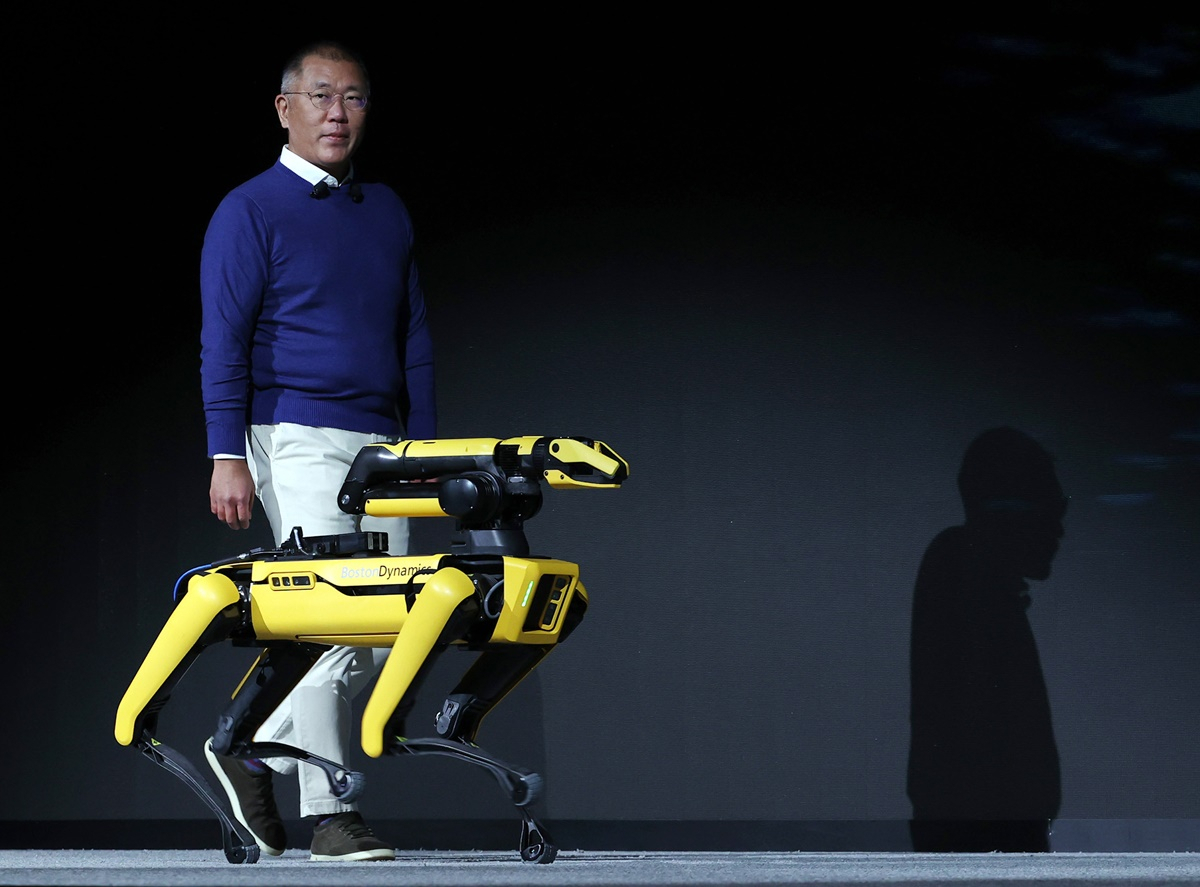
Hyundai Motor Group said Thursday it has invested 1.3 trillion won ($1 billion) in mobility and tech startups, in a move to expand its presence as the first mover in the global future mobility market.
“Unlike the traditional automotive industry, mobility innovation nowadays is happening outside of the manufacturing sector in places like Silicon Valley,” said Hwang Yoon-seong, director of the Hyundai and Kia Open Innovation division, during a press conference at a hotel in Seoul.
“We need to join forces with these innovators, especially startups, to create business opportunities in technological innovation.”
Hwang admitted that the total spending on startups is not sufficient enough considering Hyundai’s sprawling businesses, adding that the carmaker will pour more funding into startups that can create synergy through strategic partnerships.
Starting from 2017 to the first quarter of this year, the world’s third-largest carmaker has injected over 1 trillion won into some 200 domestic and global startups ranging from mobility and electrification to connectivity, autonomous driving and artificial intelligence. This excludes the acquisition deals of US-based robotics company Boston Dynamics (1.2 trillion won) and unmanned self-driving car manufacturer Motional (1.9 trillion won), according to Hyundai.
Mobility companies topped the list of Hyundai-made investments, recording 753.7 billion won, followed by 281.8 billion won and 126.2 billion won in mobility and connectivity, respectively. It injected 60 billion won and 54 billion won each in AI and self-driving firms.
The automaker vowed to expand investments in software-defined vehicles, cars that operate and enhance functions mostly via software updates, following its grand plan to transform all Hyundai and smaller affiliate Kia cars to SDVs by 2025.
“We are considering working with a wide range of startups linked to SDVs. For instance, we’ve invested in generative AI service provider Vizcom that can convert text into images when designing concept SDVs,” said Noh Gyu-seung, head of the Hyundai and Kia ZERO1NE team. “Hyundai is also carrying out research projects with quantum computing technology providers, including the US-based IonQ and Qunova Computing in Korea, which can come up with software solutions that AI cannot offer.”
Noh added that the carmaker looks to forge business ties with companies working on developing low-carbon or clean energy solutions such as Foresys, a marine waste upcycling startup based in Korea.
Since 2011, Hyundai has been operating global bases it calls "Cradle" centers, which focus on finding startups with cutting-edge technology in five countries: the US, Germany, Israel, China and Singapore. It also runs the innovation hub ZERO1NE in Korea since 2018 and a total of 19 venture capital funds globally.
A total of 30 companies have completed spin-offs from Hyundai through H-startup, the automaker’s in-house startup accelerating program, since 2000, generating 280 billion won in cumulative sales revenue and hiring over 800 new talented professionals. Currently, 10 spin-off startups have started businesses in software, biologics, logistics, healthcare and other emerging industries.
Key Hyundai-backed spin-off startups include Mobinn, a last-mile delivery robot company; Mobiltech, a digital twin technology provider; ViewMagine, a drone and AI imaging company; Aplayz, a music curation service provider; and Metaverse Entertainment, a virtual idol management and metaverse content provider.
There are a total of 150 teams from Hyundai and Kia, and nine Hyundai Motor Group’s subsidiaries such as Hyundai Mobis and Hyundai Engineering and Construction that offer new ideas in enhancing user experience in mobility, electric vehicle charging systems and other areas. These brainstorming projects shed light on which startups Hyundai should look into making investments, the company said.
Other startup-accelerating teams include Corporate Venture Capital, a team that makes decisions concerning strategic investment in startups and CorpDev, which supports acquisition deals and sets up joint ventures with emerging companies.





